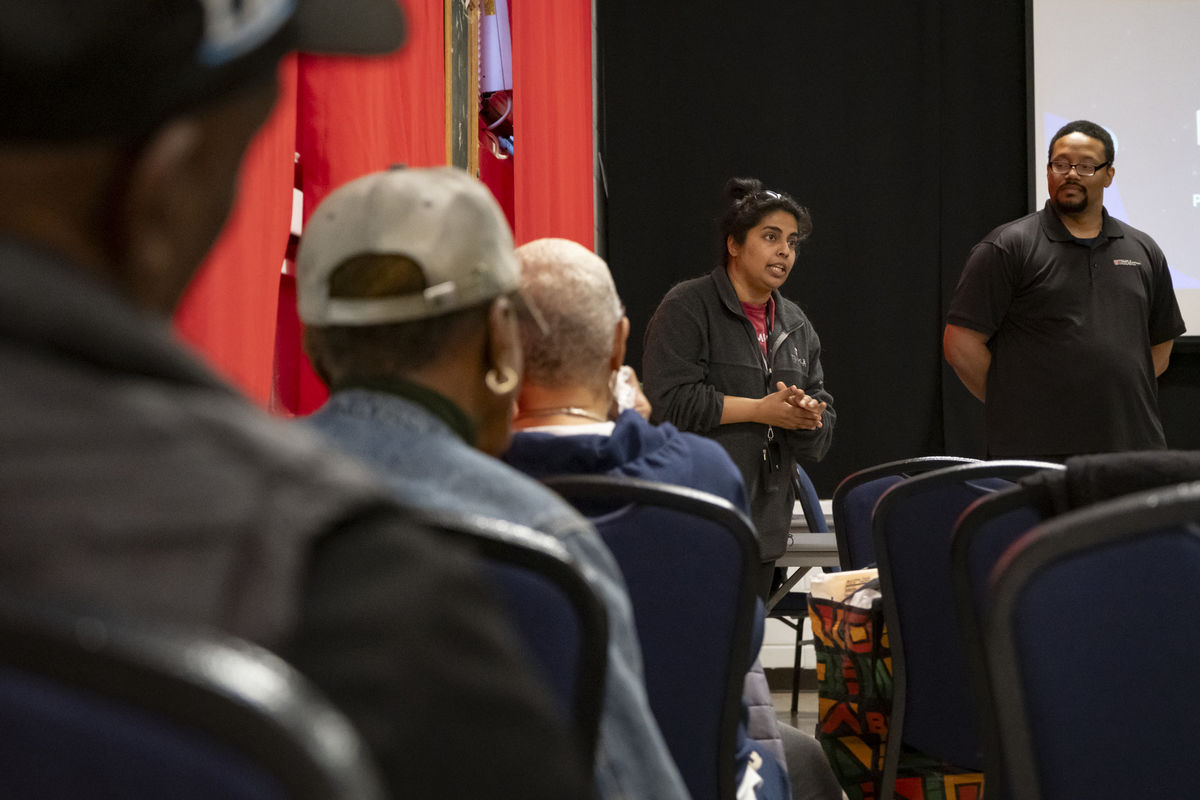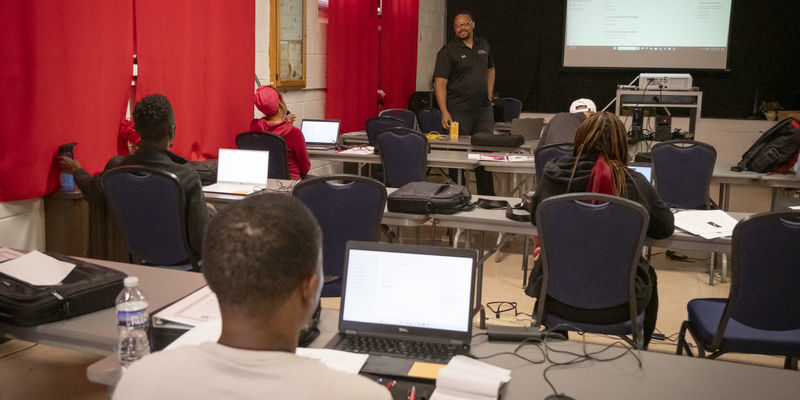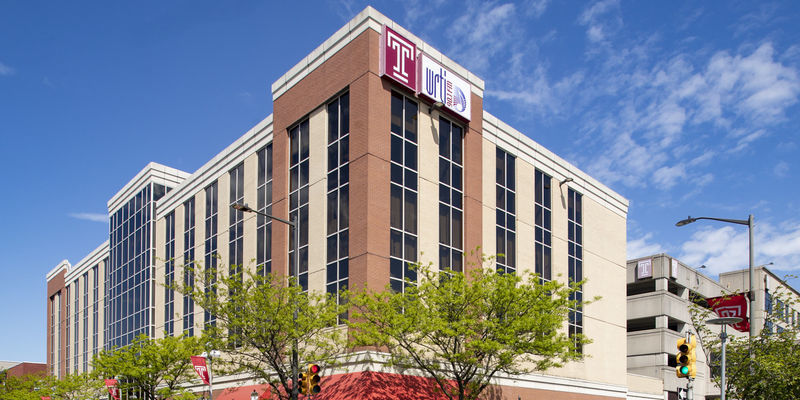Temple conducts free cybersecurity training to underserved communities, develops college students’ career skills
Temple offered a free, five-part cybersecurity clinic to educate community residents about online criminal activities and ways to prevent them during Cybersecurity Awareness Month, an international initiative each October that raises awareness about online safety and best practices for cybersecurity.

For the past month, Temple University students have been educating North Philadelphia community residents on how to avoid becoming a victim of cybercrime. It’s all part of a free, five-part cybersecurity clinic about online criminal activities and how to best prevent it.
The clinics have been a joint effort of Temple’s Digital Equity Center; the Cybersecurity in Application, Research and Education (CARE) Lab housed in Temple’s College of Liberal Arts; the Temple Community Gateway; Philly Community Wireless; and the Lillian Marrero Branch Library.
The students leading the clinics have been studying online criminal activity through the undergraduate course CJ 3007 Cybercrime.
Rege has used the basis of that course to create the curriculum that students are now using as the foundation for the five-part cybersecurity clinic.
According to Rege, cyberattacks can take many forms—fake emails, texts and websites, and social media profiles are just a few examples.
“It is important to think differently about how cybersecurity education goes beyond traditional academic spaces, as cybercriminals target everyone,” said Rege. “We started doing more community outreach and engagement projects, thinking about what cybersecurity topics to discuss.”
Temple’s cybersecurity clinics are designed to be relatable and easy to understand. The clinics move away from traditional slide presentations and instead emphasize open dialogues where attendees can discuss real-world cybersecurity experiences.
“The dialogue about cybersecurity has ended up being more conversational with the community, which is beautiful to witness because we intended to create a judgment-free space where people can talk about their experiences,” she said.
“Middle-generation and senior citizens have also brought their children and grandchildren to our clinics and are engaged in our conversations,” she added. “They can bring what they learned to family and friends, investing in the general population and becoming cyber ambassadors.”
 As part of Temple University’s cybersecurity initiative, the university held its third annual cybersecurity day clinic for the community at the Digital Equity Center on Oct. 16 (Photography by Joseph V. Labolito)
As part of Temple University’s cybersecurity initiative, the university held its third annual cybersecurity day clinic for the community at the Digital Equity Center on Oct. 16 (Photography by Joseph V. Labolito)
Katie Denyer, one of the Temple graduate students who took the CJ 8310 Cybercrime course has since delivered several cybersecurity presentations for the community. Denyer said she takes pride in educating community residents on ways to prevent cyberattacks.
“My parents are around the age of community members who are not as comfortable with technology, so it sparked my interest to help others who are more vulnerable to online threats,” said Denyer, who is on track to graduate in 2025 with a master’s degree from Temple’s criminal justice +1 BA/MA accelerated program, which allow students to earn a bachelor’s and master’s degree in five years or less.
“During our presentations, community members were fully engaged with asking questions and it was heartwarming to hear their stories,” she added.
While older adults are often considered more vulnerable to internet fraud, Denyer said it is equally important to speak about cybersecurity threats to younger people. She explained that with the growing technology of artificial intelligence (AI), things online appear nearly identical to real people and companies.
“People of all ages can easily fall victim to online threats,” she said. “Residents at one of the clinics were mesmerized by an AI-generated deepfake video of Morgan Freeman and how much it looked like him.”
The Temple students also taught attendees how to identify specific cyberattacks, including data breaches when unauthorized parties access personal information or when fraudulent email or text messages appear to come from a legitimate source, known as phishing.
“People might use AI to generate phish emails, pretending to be your bank or a company like Amazon and persuade people to share sensitive information like account passwords, payment details or personal information that they can use to steal one’s identity,” she added.
“So, it is important that we continue to educate people of all ages in the community about ways to prevent cyberattacks.”
Temple’s final cybersecurity clinic will cover fraud and scam awareness, focusing on holiday and travel-related frauds on Nov. 20 at the Lillian Marrero Branch of the Free Library of Philadelphia, located at 601 W. Lehigh Ave., in honor of International Fraud Awareness Week.
Also read:
Temple’s Community Gateway is a one-stop resource that connects individuals and families to job training and placement, youth engagement, academic enrichment, adult education and more.


